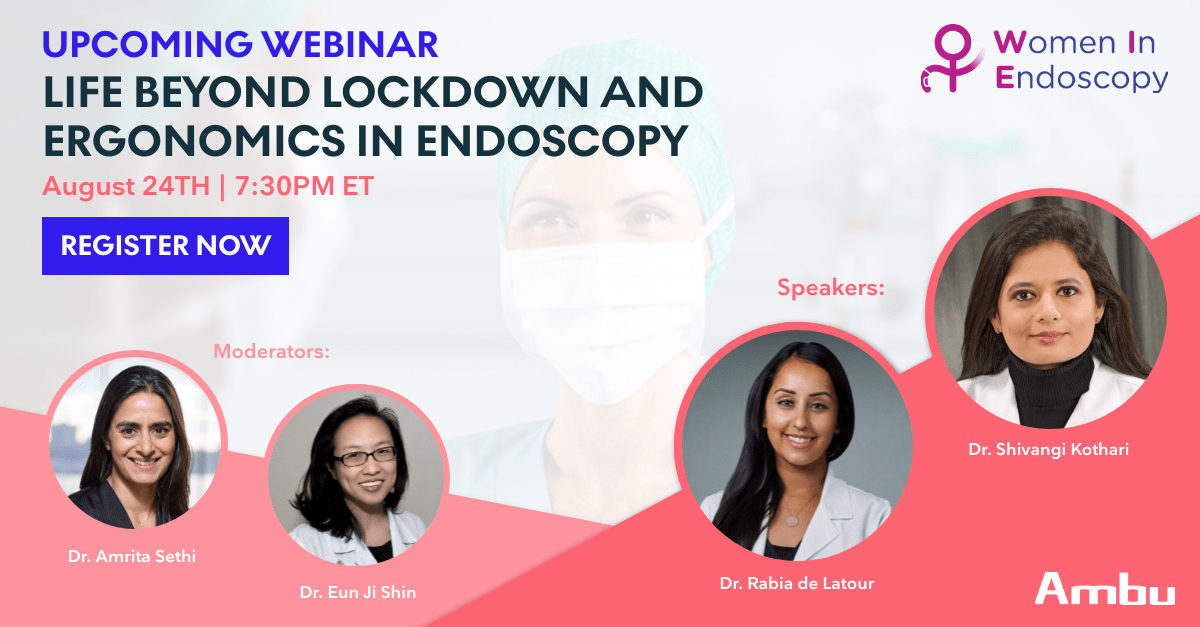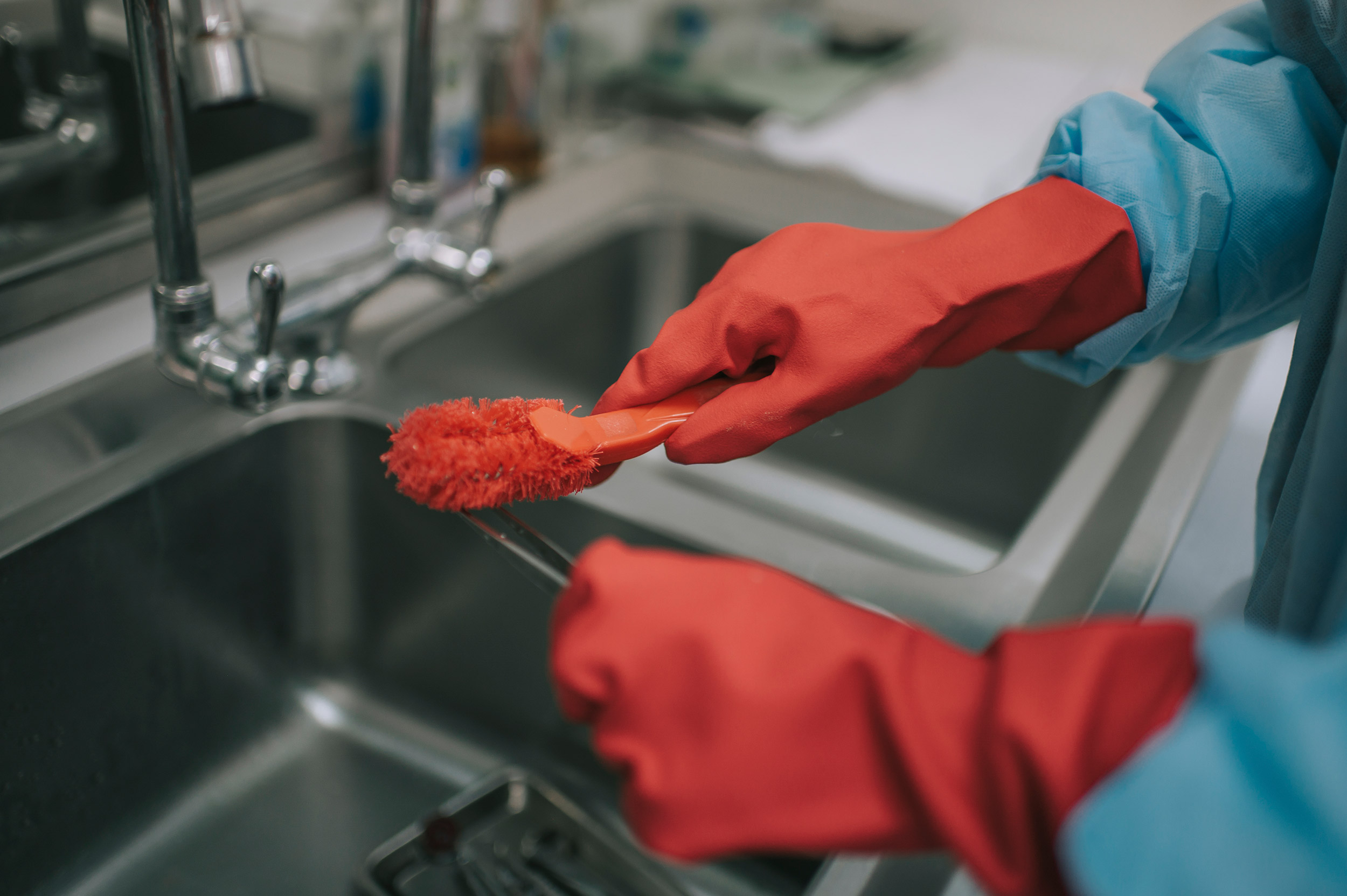
When it comes to work-life balance, every professional has unique challenges to face depending on their career and personal responsibilities.
“Of course, in this day and age, we want everything. We want to help/serve our patients, have great careers, and have a social life and life outside of work,” Dr. Shivangi T. Kothari said in a recent interview with Single-Use Endoscopy. “You’re never completely cut out of the family and you’re never completely cut out from the work.”
Later this month, Kothari will be joining a one-hour panel discussion to delve deeper into work-life balance for female gastroenterologists. The live webinar will feature two speakers and two moderators, all women, and allow time for a Q&A at the end.
And since work-life balance is not the only thing the pandemic upended, the panel discussion will also feature topics related to ergonomics. Especially as procedural volume picks up again, endoscopists will need to be prepared to take care of their bodies in the face of such grueling work.

Women in Endoscopy – Joint Webinar Event and Moderated Discussion
Life Beyond Lockdown and Ergonomics in Endoscopy
August 24, 2021 at 7:30 pm ET
Click here to register for the event.
This webinar is sponsored by Ambu, an official corporate sponsor of Women in Endoscopy.
Speakers
 Dr. Shivangi T. Kothari is an Associate Professor of Medicine and the Associate Director of Endoscopy at the University of Rochester Medical Center. Dr. Kothari received her medical degree from Seth GS Medical College and KEM Hospital in Mumbai, India. She completed her Internal Medicine residency and Gastroenterology fellowship training from Seton Hall University's School of Health and Medical Sciences, and then later her Interventional Endoscopy training at Stanford University Hospital. Dr. Kothari has clinical expertise in interventional endoscopic ultrasound, advanced therapeutic ERCP, esophageal endotherapy for Barrett's esophagus, double balloon enteroscopy, and pancreatic-biliary disorders. Dr. Kothari is an active member of many scientific GI societies, serves on various national and international gastroenterology committees and has published her research in various peer reviewed medical journals.
Dr. Shivangi T. Kothari is an Associate Professor of Medicine and the Associate Director of Endoscopy at the University of Rochester Medical Center. Dr. Kothari received her medical degree from Seth GS Medical College and KEM Hospital in Mumbai, India. She completed her Internal Medicine residency and Gastroenterology fellowship training from Seton Hall University's School of Health and Medical Sciences, and then later her Interventional Endoscopy training at Stanford University Hospital. Dr. Kothari has clinical expertise in interventional endoscopic ultrasound, advanced therapeutic ERCP, esophageal endotherapy for Barrett's esophagus, double balloon enteroscopy, and pancreatic-biliary disorders. Dr. Kothari is an active member of many scientific GI societies, serves on various national and international gastroenterology committees and has published her research in various peer reviewed medical journals.
 Dr. Rabia de Latour is a double board-certified gastroenterologist and therapeutic endoscopist in New York City. She specializes in pancreaticobiliary disorders and performs endoscopic ultrasonography (EUS), endoscopic retrograde cholangiopancreatography (ERCP), bariatric endoscopy and additional luminal endoscopy procedures. She is an Assistant Professor of medicine at NYU School of Medicine, the Director of Endoscopy at Bellevue Hospital Center and an Associate Program Director for the NYU Gastroenterology Fellowship Program. Dr. de Latour serves on the training committee of the American College of Gastroenterology (ACG), where she has focused on trainee educational tools and she is an active member of the American College of Gastrointestinal Endoscopy (ASGE). She has a strong interest in hospital sustainability efforts as well as global health and has had the opportunity to work in hospitals in Istanbul, Turkey as well as Thiruvananthapuram, Kerala, India where she performed and published breast cancer research.
Dr. Rabia de Latour is a double board-certified gastroenterologist and therapeutic endoscopist in New York City. She specializes in pancreaticobiliary disorders and performs endoscopic ultrasonography (EUS), endoscopic retrograde cholangiopancreatography (ERCP), bariatric endoscopy and additional luminal endoscopy procedures. She is an Assistant Professor of medicine at NYU School of Medicine, the Director of Endoscopy at Bellevue Hospital Center and an Associate Program Director for the NYU Gastroenterology Fellowship Program. Dr. de Latour serves on the training committee of the American College of Gastroenterology (ACG), where she has focused on trainee educational tools and she is an active member of the American College of Gastrointestinal Endoscopy (ASGE). She has a strong interest in hospital sustainability efforts as well as global health and has had the opportunity to work in hospitals in Istanbul, Turkey as well as Thiruvananthapuram, Kerala, India where she performed and published breast cancer research.
 Dr. Amrita Sethi is an interventional endoscopist at Columbia University Irving Medical Center in New York, NY. She is an Associate Professor of Medicine, Director of Interventional Endoscopy, and Program Director of the Advanced Endoscopy Fellowship. Since joining CUIMC, she has mentored over 17 interventional endoscopy fellows, participated in numerous collaborative studies in ERCP and cholangioscopy, interventional EUS, endoscopic resection and third space endoscopy; and authored papers and reviews on these topics. In 2016, Dr. Sethi founded Women in Endoscopy (WIE), previously known as Women in Interventional Endoscopy, and currently serves as president. And last year she was awarded the Master Endoscopist Award by the ASGE.
Dr. Amrita Sethi is an interventional endoscopist at Columbia University Irving Medical Center in New York, NY. She is an Associate Professor of Medicine, Director of Interventional Endoscopy, and Program Director of the Advanced Endoscopy Fellowship. Since joining CUIMC, she has mentored over 17 interventional endoscopy fellows, participated in numerous collaborative studies in ERCP and cholangioscopy, interventional EUS, endoscopic resection and third space endoscopy; and authored papers and reviews on these topics. In 2016, Dr. Sethi founded Women in Endoscopy (WIE), previously known as Women in Interventional Endoscopy, and currently serves as president. And last year she was awarded the Master Endoscopist Award by the ASGE.
 Dr. Eun Ji Shin is an Associate Professor of Medicine at the Johns Hopkins University School of Medicine. She is the Associate Director of Safety & Quality for the Division of Gastroenterology. Dr. Shin graduated summa cum laude from Harvard University with B.A. in Biology. She received her M.D. degree from Duke University School of Medicine and her Ph.D. degree from the Johns Hopkins Bloomberg School of Public Health. Dr. Shin completed her internal medicine residency, Gastroenterology fellowship and advanced therapeutic endoscopy fellowship at Johns Hopkins. Dr. Shin has clinical and research interests in GI malignancy, Barrett’s esophagus, pancreato-biliary disease, and advanced endoscopy, including ERCP and EUS.
Dr. Eun Ji Shin is an Associate Professor of Medicine at the Johns Hopkins University School of Medicine. She is the Associate Director of Safety & Quality for the Division of Gastroenterology. Dr. Shin graduated summa cum laude from Harvard University with B.A. in Biology. She received her M.D. degree from Duke University School of Medicine and her Ph.D. degree from the Johns Hopkins Bloomberg School of Public Health. Dr. Shin completed her internal medicine residency, Gastroenterology fellowship and advanced therapeutic endoscopy fellowship at Johns Hopkins. Dr. Shin has clinical and research interests in GI malignancy, Barrett’s esophagus, pancreato-biliary disease, and advanced endoscopy, including ERCP and EUS.


